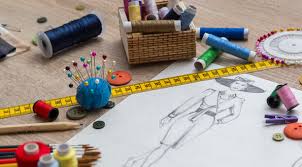Make the most of your degree course and work experience opportunities to build up your portfolio and get yourself known in the fashion world
Job options
Jobs directly related to your degree include:
- Fashion designer
- Retail buyer
- Retail manager
- Retail merchandiser
- Stylist
- Textile designer
- Visual merchandiser
Jobs where your degree would be useful include:
- Clothing/textile technologist
- Event manager
- Jewelry designer
- Magazine journalist
- Make-up artist
- Public relations officer
- Talent agent
Work experience
Getting work experience of any kind in a design studio is important. Experience in retail can also be useful. Contact fashion houses, designers, department and other retail stores and supermarket fashion labels to ask for work experience, and look for opportunities on the websites of fashion companies. You can also contact your university careers service for details of work placement opportunities.
Networking is crucial and you can often find employment by establishing relationships with designers and companies. Many courses are structured to provide opportunities to work on projects with leading fashion designers, so you should take advantage of this.
Typical employers
Fashion industry employers range from top designers in well-established studios to high street retail outlets, supermarket clothing labels and manufacturing operations. Each one offers a range of employment opportunities in areas such as design work, creation, buying, marketing and PR.
Consider other less obvious areas, too, such as costume design within the television and film industry, the fashion media, and internet companies.
Recruiters may attend graduate shows at universities and snap up the most talented designers there. The biggest retail chains run graduate trainee schemes for buyers and merchandisers. Employers often fill junior posts by contacting tutors and university careers services. Recruitment may also be done through niche agencies and the press.
Skills for your CV
During your degree you develop a range of practical fashion design skills, including:
- illustration techniques
- technical drawing
- pattern cutting and draping techniques
- tailoring
- sewing
- the use of digital technology in fashion.
You also gain an understanding of fashion trends, consumer lifestyle, brand and market awareness, marketing and enterprise, and ethical and ecological issues facing the fashion industry.
Plus, you develop a range of transferable skills, including communication, presentation, problem-solving, research, commercial awareness, and teamwork and collaboration.
Acquiring skills in self-promotion and portfolio presentation is also important. The portfolio that you'll have started during your degree is the most vital tool you have in your search for a job in fashion. Your book should contain your coursework as a starting point and be continually developed.
In the case of designers, your portfolio should contain themed collections of garments. It's your best chance to show your practical skills and impress upon a potential employer your natural creativity and flair.








